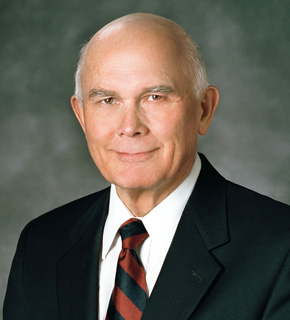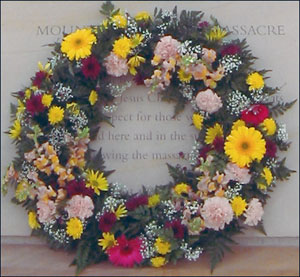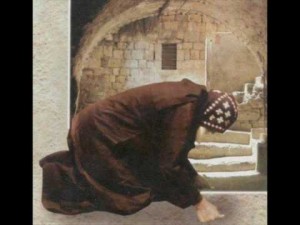Podcast: Play in new window | Download (Duration: 13:59 — 12.8MB)
Subscribe: Apple Podcasts | RSS
Podcast: Play in new window | Download (Duration: 14:00 — 12.8MB)
Subscribe: Apple Podcasts | RSS
 Mormon apostle Dallin Oaks caused quite a stir in late January. In an interview related to the Church’s news conference on LGBT issues and religious discrimination, Mr. Oaks expressed his view that apologizing for the Church’s “harsh rhetoric of the past” wasn’t a good idea. According to the Salt Lake Tribune,
Mormon apostle Dallin Oaks caused quite a stir in late January. In an interview related to the Church’s news conference on LGBT issues and religious discrimination, Mr. Oaks expressed his view that apologizing for the Church’s “harsh rhetoric of the past” wasn’t a good idea. According to the Salt Lake Tribune,
“‘I know that the history of the church is not to seek apologies or to give them,’ Oaks said in an interview. ‘We sometimes look back on issues and say, “Maybe that was counterproductive for what we wish to achieve,” but we look forward and not backward.’”
Shortly thereafter Mr. Oaks restated his position for clarity. During an online video chat, interviewer Jennifer Napier-Pearce asked Mr. Oaks about his previous comment that “The Church doesn’t seek apologies and we don’t give them” and “how that comports with Christian theology” (beginning around the 25 minute mark in the video). Mr. Oaks responded,
“I’m not aware that the word ‘apology’ appears anywhere in the scriptures — Bible or BOM. The word ‘apology’ contains a lot of connotations in it, and a lot of significance. We do not seek apologies. When our temple was desecrated in CA, when people were fired and intimidated, when a lot of other coercive measures were used, we sought no apology. That’s what I meant by saying ‘we don’t seek apology.’ We think that the best way to solve these problems is not a formal statement of words that a [sic] apology consists of, but talking about principles and good will among contending viewpoints.”
Mr. Oaks did not really answer the question, and his response was apparently unsatisfying to many. The Salt Lake Tribune subsequently published an article by Peggy Fletcher Stack titled, “No apology? Really? Mormons question leader Dallin H. Oaks’ stance.” Ms. Stack noted,
“Many Mormons across social media have reacted with dismay at hearing an LDS apostle reject out of hand the idea of apologizing.”
Mr. Oaks’ comments were in the context of LGBT issues, but he stepped outside of that context when he justified his position by stating that the word “apology” does not appear anywhere in the scriptures.
So I began to think about the Gospel Topics essays the Church has posted on its website regarding its controversial past. The essay on Joseph Smith’s polygamy mentions the facts of Smith’s lying and adultery (my words), but the Church does not apologize for the poor treatment women and girls have suffered (and continue to suffer) because of the doctrines Smith and his successors taught. Nor does the Church apologize for its past misrepresentation of these facts as “anti-Mormon lies.”
The essay on race and the priesthood mentions Brigham Young’s introduction of what became the Church’s institutional racism, but the Church does not apologize for the poor treatment Blacks have suffered because of the false doctrines Brigham Young and his successors taught. Nor does the Church apologize for the fact that these leaders clearly led the Church astray.
The essay on violence among 19th century Latter-day Saints mentions the “heated rhetoric of Church leaders” that may have led Mormons to think that they should murder 120 unarmed non-Mormons who were traveling through Utah Territory on their way to California, but the Church does not apologize to the victims’ descendants for this indefensible atrocity. Nor does the Church apologize for its blatant and continual misrepresentation of this massacre that spanned well over 100 years.
In 2007 Bill McKeever attended a memorial service commemorating the 150th anniversary of the Mountain Meadows Massacre. At that event Mormon apostle Henry Eyring expressed “profound regret” for the victims’ suffering, and for the misplaced blame the Paiute people were forced to carry for 15 decades. Deseret News and the Salt Lake Tribune both reported that the Church had finally apologized for the massacre, but they were mistaken. According to an Associated Press article, “Church leaders were adamant that the statement should not be construed as an apology.” LDS Church spokesman Mark Tuttle insisted, “We don’t use the word ‘apology.’ We used ‘profound regret.’”
 About this, Bill McKeever wrote,
About this, Bill McKeever wrote,
“Such a comment speaks volumes. It not only confirms in the minds of many that the leadership continues to display a type of infallible arrogance, but it will also be understood by many that the LDS Church is not sorry for what happened under Brigham Young’s watch. For me that is the big issue. I fully understand that there is no one currently living who was personally responsible for the [Mountain Meadows Massacre]. However, there is a corporate responsibility that the LDS leadership wants to continue to deny. Brigham Young was the ‘prophet, seer, and revelator’ of the LDS Church and he was also the ultimate head of every LDS militia in the Utah territory. True leaders understand that when things go wrong, the ‘buck’ has to stop somewhere, and in a real world it usually stops with those who are in charge.”
Not so with the Mormon Church and its leadership. At the By Common Consent website a commenter named Casey explained,
“I think most church leaders honestly don’t feel the church as an institution has ever done, or can ever do, anything wrong. It would not be in the program, and you don’t rise up the ranks of church leadership unless you’re a company man who believes exactly that.”
If Mormons hope for any apologies from their church, it appears that they will always be disappointed. It seems the Church and its leadership are not ultimately interested in repentance and reconciliation (a position, of course, that does not “comport with Christian theology”); as Mr. Oaks said, what the Church is interested in is achieving its goals and moving ahead.
In 1996, responding to a question about the Mormon Church’s racism, Mormon prophet Gordon B. Hinckley told 60 Minutes’ journalist Mike Wallace, “Look, that’s behind us. Don’t worry about those little flicks of history.” This is right in line with what Mr. Oaks expressed to journalists last month. I guess believing that Mormonism is God’s one true church means never having to say you’re sorry.
“If we say we have no sin, we deceive ourselves, and the truth is not in us. If we confess our sins, he is faithful and just to forgive us our sins and to cleanse us from all unrighteousness. If we say we have not sinned, we make him a liar, and his word is not in us.” (1 John 1:8-10)
Podcast: Play in new window | Download (Duration: 14:01 — 12.8MB)
Subscribe: Apple Podcasts | RSS
Podcast: Play in new window | Download (Duration: 13:59 — 12.8MB)
Subscribe: Apple Podcasts | RSS
While reading the October 2014 General Conference addresses, I was interested to read that Mormon apostle D. Todd Christofferson said,
“So God does not save us ‘just as we are,’ first, because ‘just as we are’ we are unclean, and ‘no unclean thing can dwell…in his presence.’ [Moses 6:57]” (“Free Forever, to Act for Themselves,” Ensign 11/14, 17)
 Mr. Christofferson made this comment in the context of our need to strive for personal righteousness – that it would be a mistake to think that “God loves and saves us ‘just as we are.’” He explained,
Mr. Christofferson made this comment in the context of our need to strive for personal righteousness – that it would be a mistake to think that “God loves and saves us ‘just as we are.’” He explained,
“God intends that His children should act according to the moral agency He has given them, ‘that every man may be accountable for his own sins in the day of judgment.’ [D&C 101:78]”
So God does not save us just as we are – we are unclean; we are sinners. We must strive for personal righteousness before God “loves and saves us.”
This is, of course, classic Mormon doctrine. The Book of Mormon explains that “if ye shall deny yourselves of all ungodliness, and love God with all your might, mind and strength, then is his grace sufficient for you” (Moroni 10:32; emphasis added). Alma 11:37 says, “Ye cannot be saved in your sins.” Second Nephi 25:23 says, “we know that it is by grace that we are saved, after all we can do.”
This works-righteousness of Mormonism has been rightly dubbed, “The Impossible Gospel.” And it is absent from the Bible.
In his conference address Mr. Christofferson did not cite his source for his quoted words “just as we are,” but it’s likely that he was referring to the beloved Christian hymn, “Just As I Am,” (lyrics written by Charlotte Elliott in 1835), biblically based on Jesus’ words in the book of John:
“Jesus said to them, ‘I am the bread of life; whoever comes to me shall not hunger, and whoever believes in me shall never thirst…All that the Father gives me will come to me, and whoever comes to me I will never cast out.” (John 6:35, 37)
As the story goes,
“Miss Charlotte Elliott was visiting some friends in the West End of London, and there met the eminent minister, César Malan. While seated at supper, the minister said he hoped that she was a Christian. She took offense at this, and replied that she would rather not discuss that question. Dr. Malan said that he was sorry if had offended her, that he always liked to speak a word for his Master, and that he hoped that the young lady would someday become a worker for Christ.
“When they met again at the home of a mutual friend, three weeks later, Miss Elliott told the minister that ever since he had spoken to her she had been trying to find her Saviour, and that she now wished him to tell her how to come to Christ. ‘Just come to him as you are,’ Dr. Malan said. This she did, and went away rejoicing. Shortly afterward she wrote this hymn.” (My Life and the Story of the Gospel Hymns, Ira David Sankey, 186)
These are the lyrics Charlotte Elliott wrote:
Just as I am, without one plea, But that Thy blood was shed for me, And that Thou bidst me come to Thee, O Lamb of God, I come.
Just as I am, and waiting not, To rid my soul of one dark blot, To Thee whose blood can cleanse each spot, O Lamb of God, I come.
Just as I am, though tossed about, With many a conflict, many a doubt, Fightings and fears within, without, O Lamb of God, I come.
Just as I am, poor, wretched, blind; Sight, riches, healing of the mind, Yea, all I need in Thee to find, O Lamb of God, I come.
Just as I am, Thou wilt receive, Wilt welcome, pardon, cleanse, relieve; Because Thy promise I believe, O Lamb of God, I come.
This hymn reflects a great truth of the Gospel: Jesus came to save sinners (1 Timothy 1:15).
Christian Pastor John MacArthur notes, “That’s the heart of the gospel, beloved. It’s for sinners. It’s for sinners.”
“[Jesus] also told this parable to some who trusted in themselves that they were righteous, and treated others with contempt: ‘Two men went up into the temple to pray, one a Pharisee and the other a tax collector. The Pharisee, standing by himself, prayed thus: “God, I thank you that I am not like other men, extortioners, unjust, adulterers, or even like this tax collector. I fast twice a week; I give tithes of all that I get.” But the tax collector, standing far off, would not even lift up his eyes to heaven, but beat his breast, saying, “God, be merciful to me, a sinner!” I tell you, this man went down to his house justified, rather than the other. For everyone who exalts himself will be humbled, but the one who humbles himself will be exalted.’” (Luke 18:9-14)
 The tax collector came to Jesus just as he was: a sinner unclean. And, as Dr. MacArthur said, “Jesus forgave him on the spot.”
The tax collector came to Jesus just as he was: a sinner unclean. And, as Dr. MacArthur said, “Jesus forgave him on the spot.”
We can debate what Mr. Christofferson meant when he said God does not save us “just as we are,” but one thing is certain: God says we need His mercy, and He freely offers it to all who recognize their own spiritual need, to all who understand we are wretched sinners. Jesus said, “Those who are well have no need of a physician, but those who are sick. I have not come to call the righteous but sinners to repentance.” (Luke 5:31-32)
Jesus calls us to come to Him just as we are. He won’t leave us there, but Jesus came to call and to save sinners. Near the end of Dr. MacArthur’s excellent sermon by that name, he said,
“Beloved, I tell you this morning God offers you grace. He offers you mercy. He offers you forgiveness. He offers you compassion. He’ll forgive all your sins if you’ll come to Him. But He can’t do anything for people who think they’re okay. Can’t do anything for people who think they’re righteous, who think they’re good. He came to call sinners to repentance. So the church is not made up of the righteous, it’s made up of penitent sinners. It’s not made up of those who think they’re good, it’s made up of people who know they’re not. It’s not made up of people who have brought their righteousness up to God as a satisfaction, it’s made up of people for whom God’s righteousness has come down as a covering…
“How low can the Lord go to save sinners? Who is He willing to forgive? Well He can only forgive people who are in this group, the lawless, the rebellious, the ungodly, sinners, profane, parent murderers, murderers of all kinds, immoral men, homosexuals, kidnappers, liars, perjurers, and anything else you want to add to the list that’s contrary to sound teaching. Those are the people He saves who have been brought against His Law and realize they have fallen short and they are saved according to the glorious gospel of the blessed God, the good news that God forgives the sins of those who repent and embrace His Son.”
Podcast: Play in new window | Download (Duration: 14:00 — 12.8MB)
Subscribe: Apple Podcasts | RSS
Podcast: Play in new window | Download (Duration: 14:29 — 13.3MB)
Subscribe: Apple Podcasts | RSS
Podcast: Play in new window | Download (Duration: 14:00 — 12.8MB)
Subscribe: Apple Podcasts | RSS
According to The Spectrum, a news source out of St. George, Utah, columnist
“Joe Kent Kerby has a Ph.D. from Columbia University in economics, is a former professor and published author, as well as a member of The Church of Jesus Christ of Latter-day Saints.”
From all of these listed qualifications, I can only see one that would have led to the terribly uninformed assertion that began Dr. Kerby’s January 22nd column:
“I believe that for many clergy members, becoming a church minister is essentially equivalent to becoming an accountant, a sales person or a computer technician. This, of course, is backward from the process prescribed by Paul.
“‘And no man taketh this honor unto himself, but he that is called of God, as was Aaron.’” (Hebrew: 5: 4)” (“LDS condemns taking money for church work”)
In his column Dr. Kerby goes on to make a case for volunteer (unpaid) clergy, such as is found, he says, in the Mormon Church:
“Pastors, known as bishops in the LDS Church, receive no financial compensation for their church service, nor do stake presidents (who preside over bishops) nor do relief society presidents, primary presidents, elders quorum presidents, high priest group leaders, or stake patriarchs. The entire church is administered by saints who serve the Lord without remuneration.”
 Of course, it is not completely true to say that “the entire church is administered…without remuneration” since many Mormon Church leaders do receive financial compensation, even if it is “merely” to provide for living expenses and reimbursement for various expenses incurred in carrying out their duties. For information on the idea of paid/unpaid ministry and its spiritual basis, take a look at MRM’s articles, “Mormonism’s Paid Ministry” and “What does ‘unpaid ministry’ look like? A look at the mission presidents handbook.”
Of course, it is not completely true to say that “the entire church is administered…without remuneration” since many Mormon Church leaders do receive financial compensation, even if it is “merely” to provide for living expenses and reimbursement for various expenses incurred in carrying out their duties. For information on the idea of paid/unpaid ministry and its spiritual basis, take a look at MRM’s articles, “Mormonism’s Paid Ministry” and “What does ‘unpaid ministry’ look like? A look at the mission presidents handbook.”
Much could be said regarding Dr. Kerby’s assertions about Mormonism’s unpaid administration, but what I want to focus on here is his initial statement:
“…for many clergy members, becoming a church minister is essentially equivalent to becoming an accountant, a sales person or a computer technician. This, of course, is backward from the process prescribed by Paul.”
Reading this, I can’t help but wonder whether Dr. Kerby has ever spoken to a pastor regarding his call to ministry. In the context of Dr. Kerby’s column, he is asserting that men and women often become ministers for the money. Everyone needs a job, after all. And while it may be true that some people become ministers for self-serving reasons, I’ve never met one.
I’ve met a lot of pastors. Almost without exception they have been servants of God who are responding to God’s call on their lives. The very idea of entering into the pastorate because they needed a job would make them cringe.
Consider the words of Pastor Kevin DeYoung as he discusses the ministry:
“I get to serve the God I love and work with the things our God loves most deeply: his word and his church…Above all, the shepherd aims to serve the flock, even at great personal cost to himself. The shepherd is accountable for the sheep as their ‘protector, provider, and guide.’ He must be the type of leader who can rule with a rod of iron (Psalm 2) and tenderly carry the nursing ewes (Isaiah 40). ” (Kevin DeYoung, “Embracing a Pastoral Approach”)
“Ask any pastor who really takes his work seriously and he will tell you of the pressures he feels in ministry—people in crisis, people leaving, people coming, people falling through the cracks, people disappointed by the pastor, people disappointing to the pastor. In the midst of this work the pastor is trying to find time for study, prayer, preparation, and family. He’s trying to improve himself, train up new leaders, meet the budget, get to know a few missionaries, champion important program, manage staff, take care of administrative details, provide for deep, accessible worship and preaching, be responsive to new ideas, listen to new concerns, be ready to help when people are in trouble.” (Kevin DeYoung, “Pastoral Pressure and Apostolic Anxiety”)
Retired pastor John Piper wrote “30 Reasons Why It Is a Great Thing to Be a Pastor.” His list includes things like:
1. God is the greatest Reality in the universe. And pastors swim in that sea with ever-replenished joy.
2. Jesus is the greatest Savior, Master, and Friend that ever was or will be. And pastors contemplate and commend him every day.
3. The Holy Spirit is the greatest Helper in the world. And pastors are driven to have his fullness constantly.
4. The Bible is the greatest book there is. And pastors delight to mediate on it day and night.
5. The gospel is the greatest news ever sent. And pastors revel in believing it and telling it every day.
And on it goes in this same vein, until number 28. At number 28 Dr. Piper mentions money:
28. Loving money is the great root of countless evils. And pastors sever it in their homes and seek its cheerful death in all their flock.
Finally Dr. Piper reaches the end of his list:
30. Lowly servanthood is high greatness. And pastors rejoice to say: He must increase, and I must decrease.
 Dr. Kerby is way off base when he asserts that the way Christian pastors approach their vocation is “essentially equivalent to becoming an accountant, a sales person or a computer technician.” Becoming a minister of God is recognized within Christianity as a high and holy calling that carries with it great responsibility. Pastor John MacArthur noted that as a pastor:
Dr. Kerby is way off base when he asserts that the way Christian pastors approach their vocation is “essentially equivalent to becoming an accountant, a sales person or a computer technician.” Becoming a minister of God is recognized within Christianity as a high and holy calling that carries with it great responsibility. Pastor John MacArthur noted that as a pastor:
“I am directly responsible to God for the lives of the people He has given me to shepherd…I have a relationship with my people like that of a shepherd and his sheep. I watch over their souls as one ‘who will give an account’ (Heb. 13:17).” (“Ten Reasons I Am a Pastor”)
Some pastors initially resist God’s call to the ministry. Consider the story of Jason Meyer. He was content to pursue a career as an occupational therapist – until his grandfather asked him to pray and seek God’s leading for his life.
“The ministry idea seemed odd. Nevertheless, he couldn’t shake it. It became a burden to him and he grew desperate for clarity. ‘If you want me to do this, just tell me,’ Jason prayed. As a 19-year-old kid with his whole life ahead of him, he just wanted to be sure he was doing the right thing. He wanted a clear sign. He wanted God to speak. And as he sat in church the next Sunday, God did.
“The pastor preached on the calling of the disciples and at one point in the sermon, having no knowledge of Jason’s quest for clarity, the pastor looked out at the congregation and said there were some present who needed to answer God’s call. Jason, now sitting on his hands and completely undone, whispered, ‘God, I’m yours.’” (“Because God Leads: The Story of Jason Meyer”)
Jason Meyer was eventually called to succeed John Piper as Pastor for Preaching and Vision at Bethlehem Baptist Church. He did not take this honor to himself, but humbled himself, as one who was called by God, to give his very life in service and obedience to his Lord.
It might make Mormons feel better about their faith to think of Christian pastors as “hirelings of Satan bent on convincing God’s children to believe in a false gospel” (as the temple ceremony used to depict), but the truth is, Christian pastors love God and love God’s people, and sacrificially give their lives to God’s service.